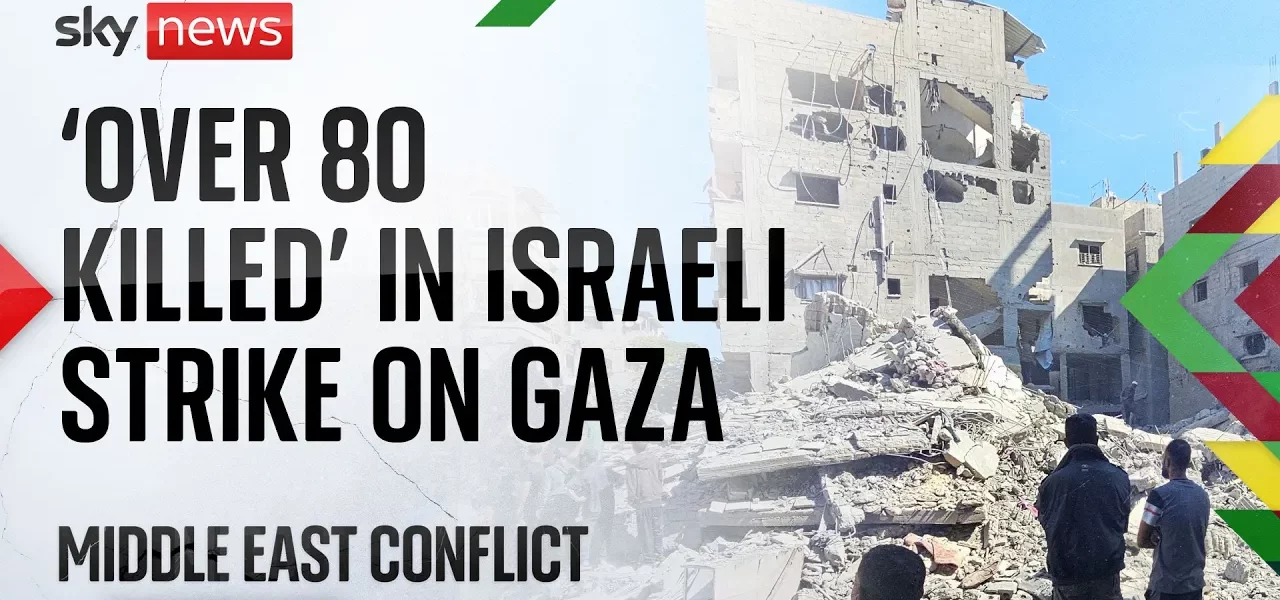Escalating Conflict: Israel’s Offensive in Gaza and Lebanon

This article provides a comprehensive overview of the ongoing military operations and humanitarian crisis in the Middle East, focusing on the recent escalations in Gaza and Lebanon following the death of Hamas leader Yaya Sina.
Introduction
The situation in the Middle East has reached a critical juncture as Israel intensifies its military operations in Gaza and Lebanon. Following the assassination of Hamas leader Yaya Sina, the conflict has escalated, resulting in significant casualties and widespread destruction. This article explores the latest developments, the humanitarian implications, and the geopolitical context surrounding this conflict.
Recent Military Actions in Gaza
In recent days, Israeli airstrikes have targeted various locations in Gaza, particularly the northern town of B lahia. According to reports from medical personnel and Hamas-affiliated media outlets, at least 87 individuals have lost their lives due to these strikes. However, the Israeli government has contested these figures, claiming they are exaggerated.
Intensity of Strikes
The operations in Jabalia, also in Northern Gaza, have seen escalating fighting over the last two weeks. Israeli forces are reportedly engaged in a systematic campaign aimed at degrading Hamas’ operational capabilities.
- Airstrikes on residential buildings
- Use of tanks and drones
- Increased ground troop presence
Conflict in Lebanon
Simultaneously, the conflict has spilled over into Lebanon, where Israeli airstrikes have targeted Hezbollah’s intelligence headquarters and an underground weapons workshop. Reports indicate that three Lebanese soldiers have been killed in these strikes, further inflaming tensions across the border.
Hezbollah’s Response
In retaliation, Hezbollah has launched six rockets into Northern Israel, with smoke visible rising from the cities of Safed and Rosh Pina. Israel’s Chief Military Spokesman has indicated that targeted strikes against Hezbollah’s financial infrastructure will be carried out in the coming hours.
Humanitarian Crisis in Gaza
The humanitarian situation in Gaza is deteriorating rapidly. The Gaza Health Ministry reports that over 80 civilians have been killed in airstrikes on residential buildings, compounding the suffering of a populace already weakened by years of conflict.
Living Conditions and Aid Access
With ongoing military operations, access to humanitarian aid has become increasingly restricted. The United Nations has expressed urgent concerns over the civilian toll, particularly as the region enters a challenging season with limited food and medical supplies.
- Food shortages leading to malnutrition
- Increased disease outbreaks due to poor living conditions
- Difficulty in delivering humanitarian aid
Geopolitical Implications
The ongoing conflict has significant ramifications for regional stability. Israeli Prime Minister Benjamin Netanyahu has stated that Israel will unilaterally decide its course of action, emphasizing a desire for a decisive victory against Hamas and Hezbollah.
International Response
The international community is closely monitoring the situation, with calls for restraint and the protection of civilian lives. The dialogue between Netanyahu and global leaders, including a recent conversation with former President Donald Trump, highlights the geopolitical stakes at play.
Conclusion
The escalation of violence in Gaza and Lebanon marks a troubling phase in the long-standing conflict between Israel and militant groups. As military operations intensify, the humanitarian crisis deepens, raising urgent questions about the future of peace and stability in the region. It is crucial for the international community to engage actively to prevent further loss of life and to facilitate humanitarian assistance. Stay informed and engaged with the latest developments in this critical region.
“`




